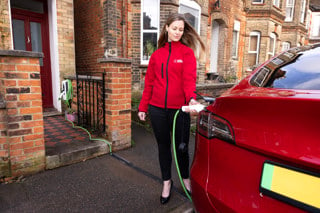The Chancellor Philip Hammond has put the fleet industry on alert after announcing that he expects to reveal changes to the tax treatment of diesel vehicles in the autumn.
He said that the Government was committed to improving air quality, and will consult on a detailed draft plan in the spring which will set out how the UK’s air quality goals will be achieved.
Alongside this, he said it will “continue to explore the appropriate tax treatment for diesel vehicles, and will engage with stakeholders ahead of making any tax changes at Autumn Budget 2017”.
RAC chief engineer David Bizley said: “The Chancellor has fired a warning shot to diesel drivers, with the suggestion in the Budget document that a new tax regime covering diesel drivers could be introduced before the end of the year. This uncertainty is bound to be of concern to private and business motorists alike, who will be wanting urgent clarity on just what the Government plan to do.”
BIK and expenses
The Government is also considering how the tax system could be made fairer and more coherent, including by looking at the taxation of benefits in kind and employee expenses.
It will publish a call for evidence on exemptions and valuation methodology for the income tax and employer NICs treatment of benefits in kind, in order to better understand whether their use in the tax system can be made fairer and more consistent.
In addition, it will publish a call for evidence to better understand the use of the income tax relief for employees’ expenses, including those that are not reimbursed by their employer.
Roads funding
Elsewhere in the Budget, there was more money for roads, with a competition for £690 million to help local authorities tackle congestion.
The Chancellor also announced £90 million for the North and £23 million for the Midlands from a £220 million fund that addresses pinch-points on the national road network.
Bizley said: “We welcome more funds to tackle urban congestion – not least because congestion goes hand-in-hand with poor air quality, so tackling one can help the other. However, we’ll need to look carefully at how councils will be expected to bid for money.
“What we certainly don’t want to see is a situation where local authorities have to take part in an expensive, protracted process simply to have the funds they need to sort out well known bottlenecks on our town and city centre roads.”
LeasePlan UK's managing director Matt Dyer added: “The vehicle rental and leasing industry contributes around £25 billion a year to the UK economy and in 2016 the leasing industry accounted for more than half the number of new cars registered on the road. So, this news will be especially pleasing for UK businesses.”
Energy and transport taxes
From 1 April 2017, VED rates for cars, vans and motorcycles registered before April 2017 will increase by Retail Prices Index (RPI).
Meanwhile, HGV VED and Road User Levy rates will be frozen from April 1, 2017. A call for evidence on updating the existing HGV Road User Levy will also be launched this spring.
The Government says it will work with industry to update the Levy so that it rewards hauliers that plan their routes efficiently, to incentivise the efficient use of roads and improve air quality.
Peter Millichap, director of marketing at Teletrac Navman, said: “Teletrac Navman fully supports the Government’s commitment to update the existing HGV Road User Levy later this year.
“Haulage firms across the UK have invested in telematics software which allows them to plan their routes more effectively, saving fuel and having a positive impact on the environment.
“Teletrac Navman believes hauliers should be rewarded for taking steps to improve their fleet operations, which will in turn encourage other businesses to do so. We look forward to seeing the Government’s proposals in the Spring.”
He continued: “The decision to freeze vehicle excise duty for HGVs should also be welcomed, given the continued pressure which businesses face at the pump.”
Hammond had previously announced the continuing freeze in fuel duty in Autumn Statement 2016.
Growth
With higher than expected growth in Q4 2016 and stronger near-term momentum in the economy, the Office for Budget Responsibility (OBR) revised up its forecast for GDP growth in 2017 by 0.6 percentage points to 2%. Thereafter there is a shallower slowdown and a more gradual recovery, with growth revised down to 1.6% in 2018, 1.7% in 2019, and 1.9% in 2020, followed by an unchanged forecast of 2.0% growth in 2021.
Sue Robinson, National Franchised Dealers Association (NFDA) director, said: “The decision to revise growth forecasts for the year is a positive sign, which follows the better than expected performance of the UK economy over the final months of 2016 and its momentum in the beginning of 2017.
“We hope that the UK will continue to show its resilience in the upcoming months.”
Prices
The OBR also forecasts that CPI inflation will increase to 2.4% in 2017 before falling back to 2.3% in 2018 and 2.0% from 2019 to 2021.
Sterling has appreciated 3.3% on a trade‑weighted basis since the beginning of November 2016, but remains 11.9% below its level of early June 2016, while global oil prices have increased 16.3% since the beginning of November.
The two effects broadly counterbalance each other. Combined with the OBR’s judgement on the effect of policy measures, this means that inflation is expected to be slightly higher in the near term and slightly lower in later years than forecast at Autumn Statement 2016.
Claire Evans, head of fleet consultancy at Zenith, concluded: “Dubbed the Brexit budget by commentators, the Chancellor made some headline-grabbing announcements to push disruptive technologies and enhance productivity.
"For the fleet industry this was a budget of stability, which will be welcome news after many recent changes. But she added: "It was disappointing not to see company car tax rates for 2021 published."
























Bevmick Barnes - 13/03/2017 10:08
Here we go, hit on private diesel car owners after all the previous encouragement to buy diesel!! New diesels is fair enough but I bought a good diesel to take me well into retirement.